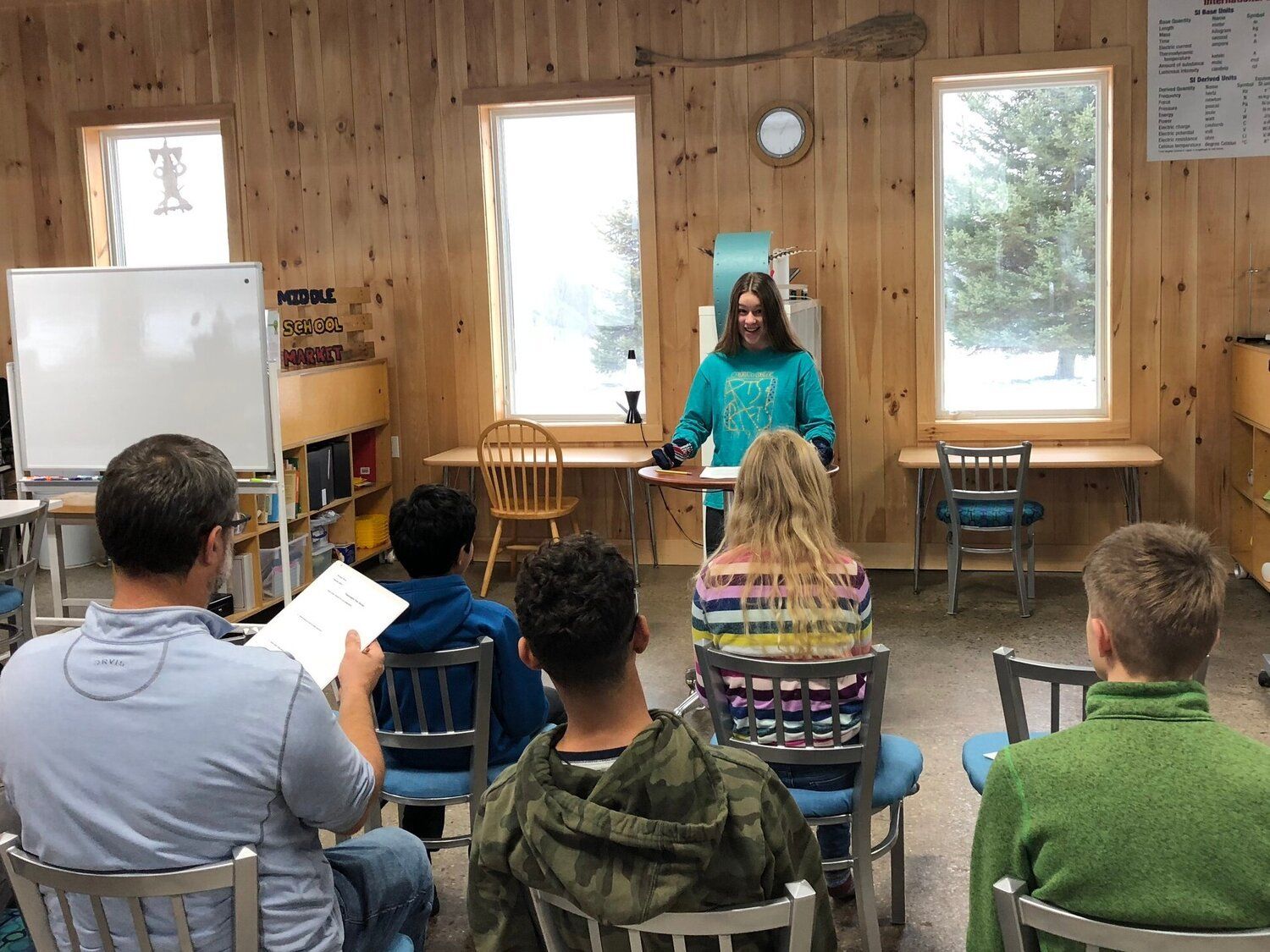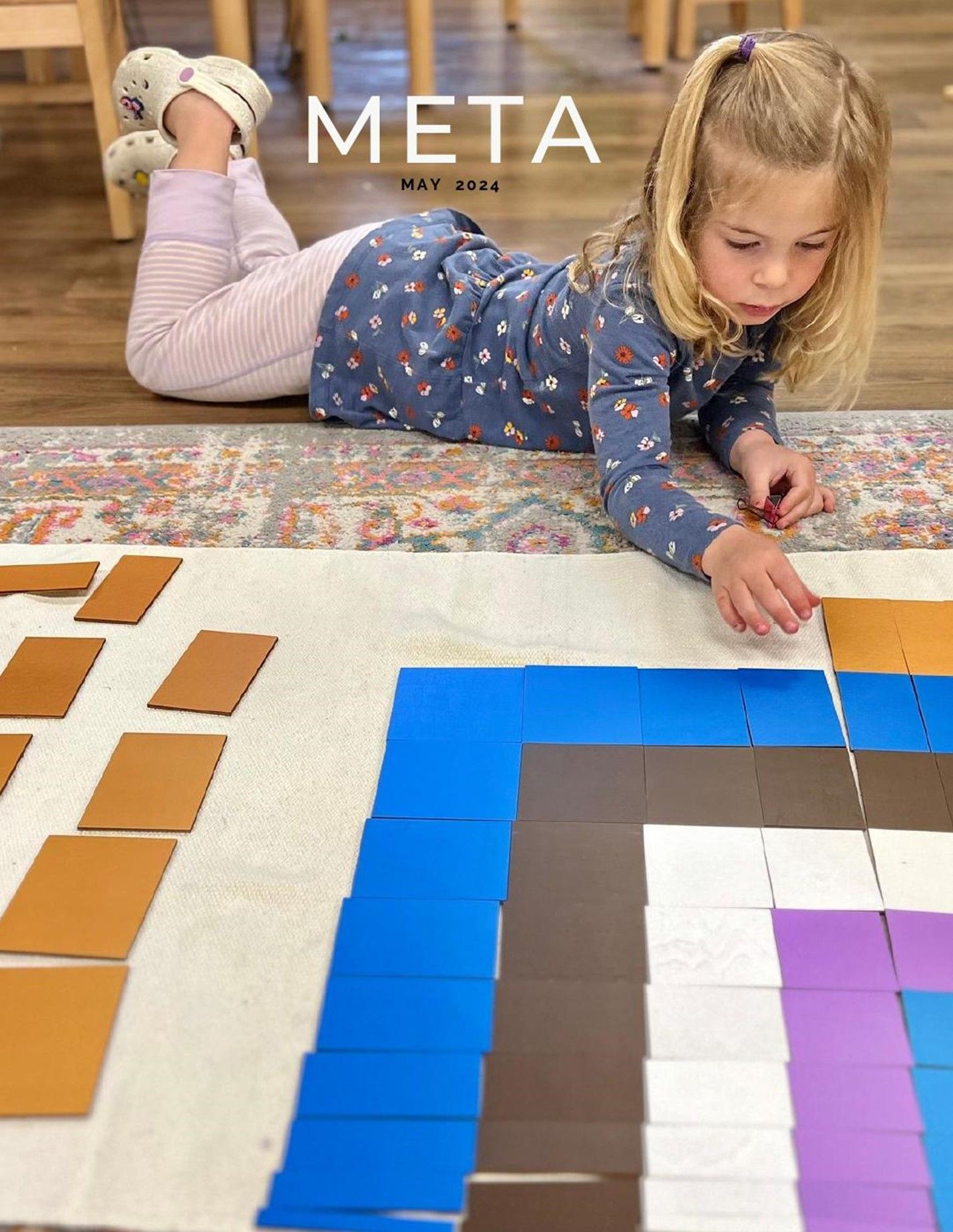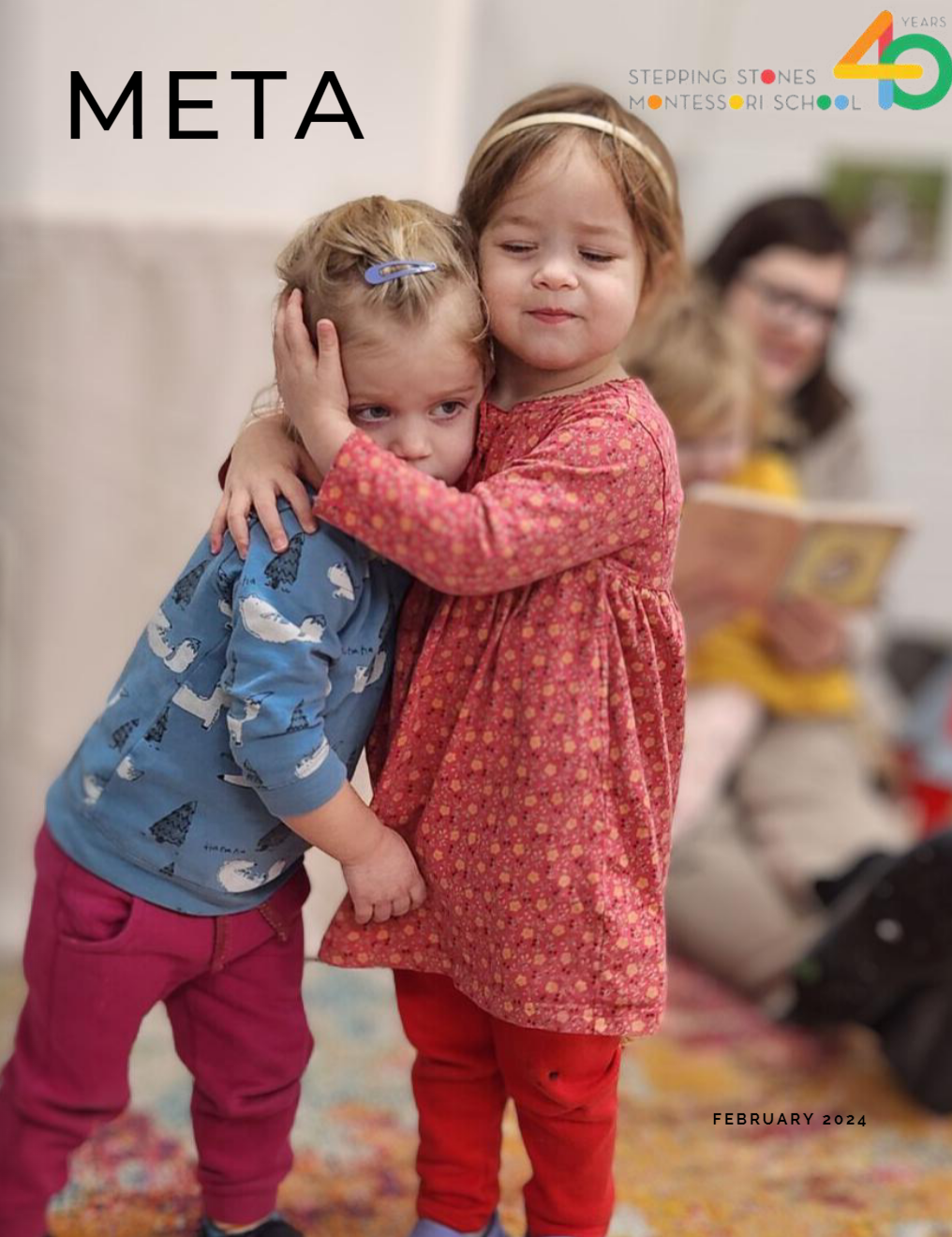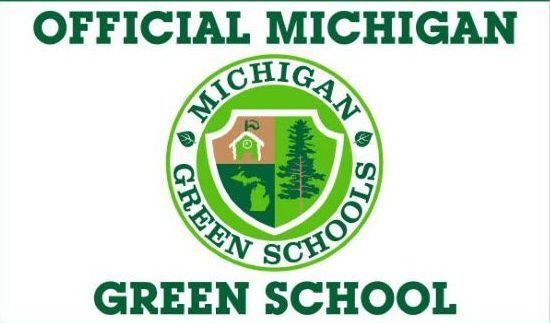How many formal presentations did you give before the age of 15? For most of us, the answer is probably somewhere close to zero. For Montessori middle schoolers at River Ridge Farm, the answer is at least 18.
Presentations are an essential element of the Montessori adolescent experience. They represent the third period of the Montessori learning framework, cultivate adolescents’ developmental tendencies, and provide opportunities to acquire academic and career skills.
The Process Of The 3-Period Lesson
In Montessori environments, the 3-period lesson is central to the learning process.
The first period introduces new ideas, facts, and vocabulary; the second period provides ample time and space for student exploration of the new topic area; the third period is the time for students to demonstrate mastery.
At the middle school level, project cycles adhere to the 3-period lesson framework. In the first period, guides and visiting specialists provide key lessons on a general topic of study. During the second period, students explore specific areas of interest, eventually discovering one topic to develop into an independent research project, which must include a written, spoken, and creative component. Presentations represent the third period. By presenting what they have learned, students demonstrate mastery and expertise in their chosen research areas. At the same time, they expand the breadth and depth of knowledge of the whole community. Finally, presentations provide a platform for developing social, emotional, and academic skills.
“Presentations help cultivate academic and career skills, such as:
Public Speaking
Peer Evaluation
Applying Knowledge
Flexible Thinking
Empath
Time Management
Active Technology Use”


Montessori Grammar Boxes help students gain a deeper understanding of the parts of speech.
Succeeding, Or Failing, Safely
Regardless of what form presentations take, the function always includes demonstrating expertise in the chosen project area. In this way, presentations set the stage for valorization--making a unique contribution that is valued by the community. Each adolescent chooses a specific topic of interest for their research project. As a presenter of this topic, they are the only expert in the room. They must prepare a spoken presentation to communicate what they have learned, add a creative element to engage the audience, and think on their feet to respond to a series of audience questions. For a student who has prepared an adequately researched and rehearsed presentation, presentation day brings feelings of accomplishment and validation. By contrast, presentation day communicates valuable lessons to students who missed the mark, by failing to dig deeply enough into their topic or neglecting presentation planning and rehearsal. By participating as both a presenter and an audience member, adolescents learn how to provide meaningful peer feedback, how to accept constructive criticism, and how to respond to unconstructive criticism. Best of all, they try out these adult-like roles and experience these adult-like consequences before the stakes are raised to an adult level in high school, college, and beyond.
Practical Skills For High School And Beyond
Presentations are one way that Montessori middle school serves as an aid to life. They provide valuable practice with social, emotional, and academic skills that adolescents will need as they grow into adulthood. And they meet the unique developmental needs of young adolescents by providing them with a safe space to learn from both successes and failures as they continue to become who they are.

A group of Upper Elementary students practice reading their parts for a Readers Theater performance.





